Counter culture – choices for your kitchen surfaces
In the modern home, the kitchen has expanded from a small cooking area to a room where family and friends comfortably gather and socialize. So it comes as no surprise that home owners are paying greater attention to the kitchen’s design and features, including which type of countertop to use.
With a wide selection of surfaces to choose from, how do you determine which one is right for you?
Butcher block (wood)
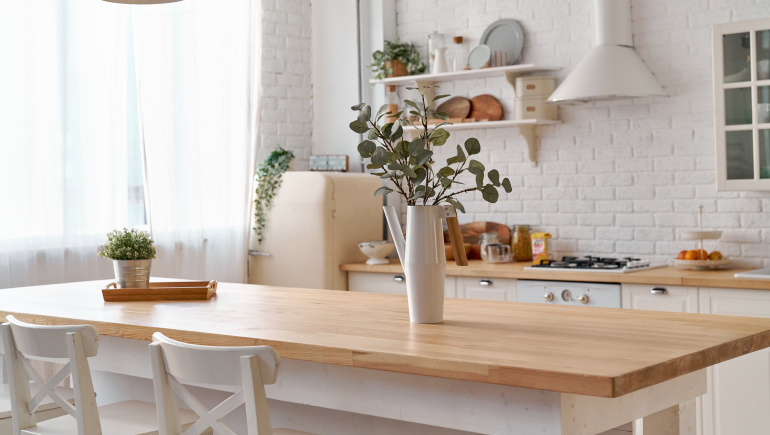
Butcher block countertops are made from hardwood glued together. They give a warm look and a softer landing for glasses and plates. It’s popular to combine a wood counter top with a second surface.
Pros: absorbs sound, less expensive, can be restored to look new.
Cons: scratches and marks easily, needs resealing - especially around the sink.
Concrete
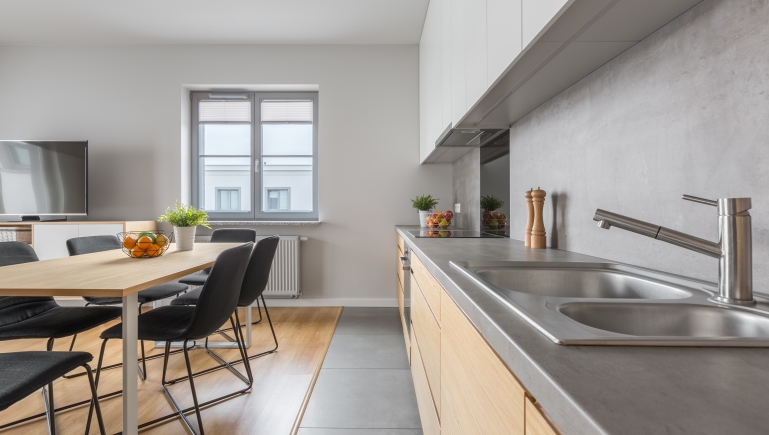
Quickly growing in popularity, concrete is used to achieve an industrial or minimalist look, but can be easily adapted to suit most styles.
Pros: great versatility as it’s easy to customise using colour and imprints (like floral designs), can add glass pieces for a contemporary look, durable.
Cons: requires annual sealing to avoid staining and cracking, more expensive, heavy so cabinets (and floor) may need to be reinforced.
Granite
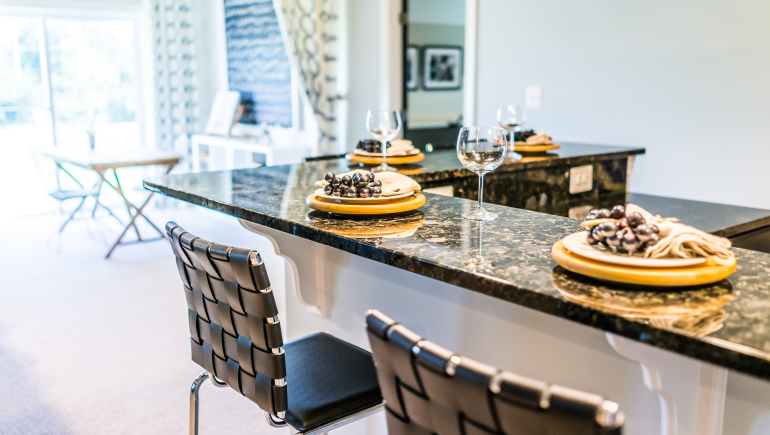
Unlike most countertops, granite is a natural product formed deep underground when compressed under heat and pressure.
Pros: heat-resistant, unlikely to scratch or chip, durable, wide range of colours and patterns.
Cons: requires annual sealing , more expensive, heavy so cabinets may need to be reinforced.
Laminate
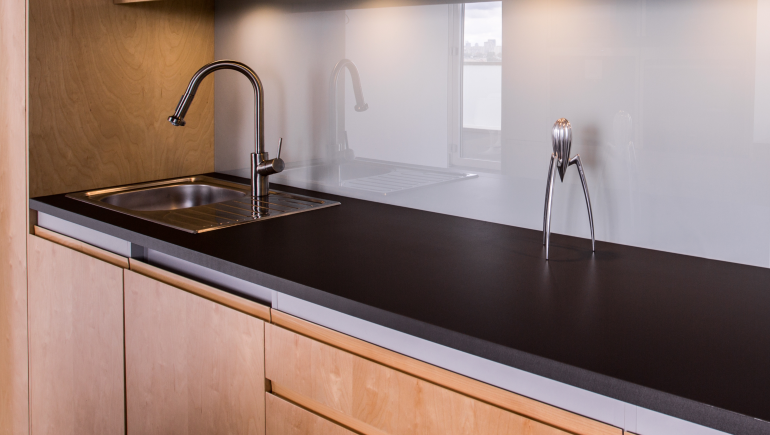
Made from layers of plastic bonded to particleboard or kraft paper.
Pros: available in a variety of colours and patterns, can look like more expensive surfaces, easy to install and maintain, less expensive.
Cons: scratches and burns easily.
Marble
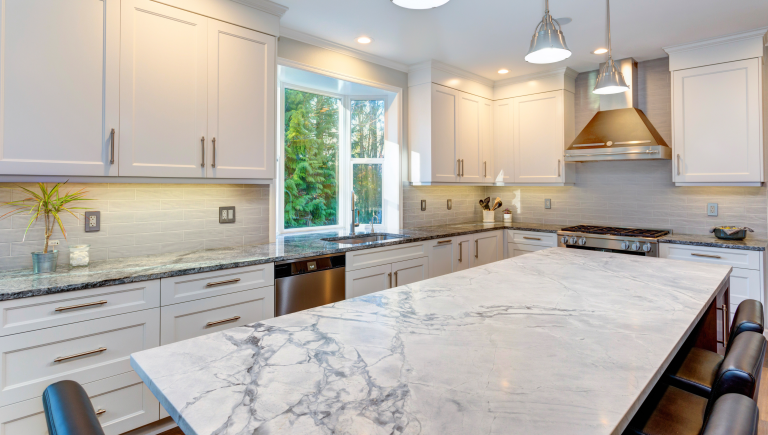
It’s easy to see why marble is a popular choice. It’s a natural stone (like granite) and it looks beautiful in any setting.
Pros: heat-resistant, easy to shape for a custom look, wow factor.
Cons: scratches easily, vulnerable to staining, leaves a dull mark if acid (like vinegar or lemon juice) spills on it, requires resealing every six months to a year depending on use and marble type.
Quartz
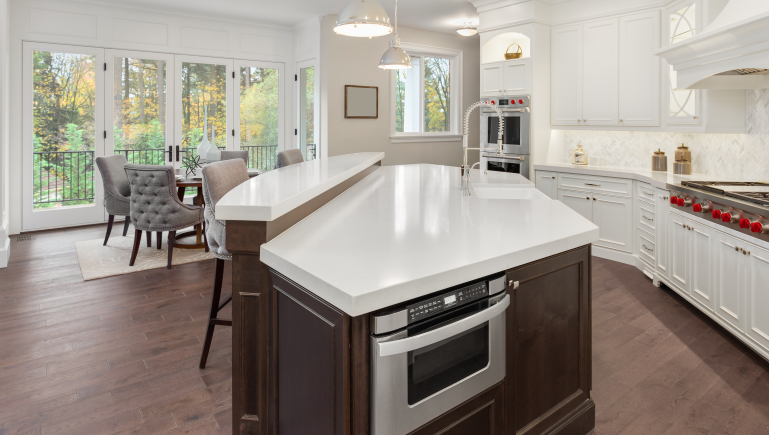
This man-made stone surface is comprised of quartz (90 per cent) bound with resin (10 per cent) and pigments. It’s non-porous quality makes it ideal for the kitchen.
Pros: durable, scratch-, stain-, and heat-resistant, no sealing required, offered in a variety of colours and patterns.
Cons: price comparable with granite, marble, and concrete.
Stainless steel
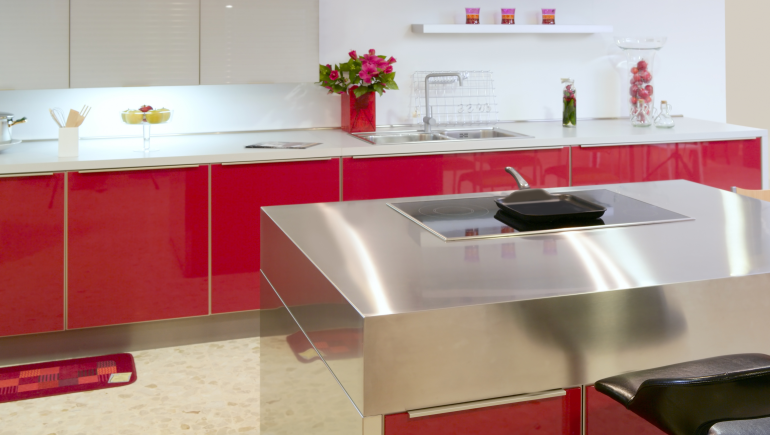
Commonly used in commercial kitchens, stainless steel is now becoming a popular choice for home use due to its sleek and clean look.
Pros: acid-, heat-, stain-resistant, durable, hygienic.
Cons: scratches easily, can dent (depends on metal gauge and wood underlay), noisy, shows fingerprints.
 The Largest Number of Homes for Sale
The Largest Number of Homes for Sale